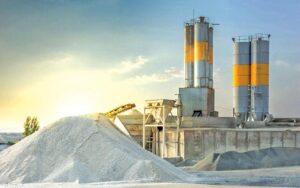
CRH Ukraine B.V. (Netherlands) has announced its intention to acquire a 99.9775% stake in the authorized capital of Dickerhoff Cement Ukraine PJSC, which owns two cement plants in Rivne and Mykolayiv regions.
The corresponding message the company posted in the information disclosure system of the National Commission for Securities and Stock Market (NCSSM) on August 12.
It is indicated that CRH Ukraine B.V. intends to purchase 158 million 311 thousand 865 common registered shares, which is 99.9775% of the authorized capital of PJSC. At the same time CRH and its affiliates do not own shares of “Dickerhoff Cement Ukraine” as of the date of the message.
As reported, in July 2024, the Antimonopoly Committee of Ukraine (AMCU) authorized CRH group to acquire the assets of Dickerhoff Cement Ukraine. At the same time, the condition of concentration is the transfer of 25-28% of shares of PJSC with the right of veto to an independent investor within nine months from the date of the purchase.
It is expected that such investor will be the European Bank for Reconstruction and Development (EBRD), since in December 2023 CRH signed a mandate letter with it regarding the joint acquisition of assets of the Italian company Buzzi in Ukraine.
In addition, CRH will be obliged to report regularly for five years to the AMCU, in particular on the volume of production and selling prices on the domestic market.
As reported, in June 2023, the Italian cement manufacturer Buzzi, listed by the National Agency for the Prevention of Corruption as an international sponsor of war, through its subsidiary Dyckerhoff GmbH reached an agreement to sell part of its business in Eastern Europe to the Irish group CRH, including Ukrainian assets in the form of two cement plants – Volyn Cement (Zdolbunov, Rivne region) and Yugcement (Olshanske, Mykolayiv region).
AMCU considered CRH’s application for concentration from September 2023.
CRH has been operating in Ukraine since 1999. Since November 2021, its cement enterprises in Ukraine have been operating under the Cemark brand: Podolsk Cement JSC (Khmelnytskyi oblast), Cement LLC (Odessa) and Mykolaivcement PJSC (Lviv oblast).
A separate line of CRH business in Ukraine is production of concrete and reinforced concrete products. PoliBeton Energo’s Bila Tserkva Reinforced Concrete Plant is a specialized enterprise that produces supports for power transmission lines. PoliBeton’s concrete unit in the north of Odessa joined CRH in 2020.
Since 1999, the company has invested about $500 million in Ukraine. In particular, since the start of the full-scale invasion, CRH has invested $80 million, including $34 million in the construction of a cement terminal in the Kiev region.
CRH is the leading producer of construction materials in the world. The company employs about 71 thousand people at 3200 enterprises in 28 countries. It is the largest producer of construction materials in North America and Europe. The company is also present in Asia. American depositary shares of CRH are listed on the New York Stock Exchange.
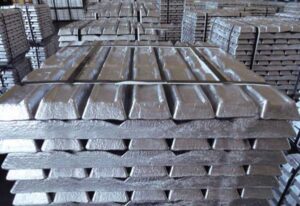
According to customs statistics released by the State Customs Service of Ukraine, Ukrainian enterprises in January-July 2024 increased exports of aluminum and aluminum products by 16.8% compared to the comparable period a year earlier – to $64.382 million (in July – $10.207 million).
Exports of aluminum and aluminum products in 2023 increased 0.7% year-on-year to $97.616 million (July – $10.207 million),
Aluminum is widely used as a structural material. The main advantages of aluminum in this capacity are its lightness, pliability for stamping, corrosion resistance, high thermal conductivity, and the non-poisonous nature of its compounds. In particular, these properties have made aluminum extremely popular in the production of kitchen utensils, aluminum foil in the food industry, and for packaging. The first three properties have also made aluminum a major raw material in the aviation and aerospace industries (recently displaced by composites, primarily carbon fiber). After construction and production of packaging – aluminum cans and foil – the largest industry-consumer of the metal is the energy sector.
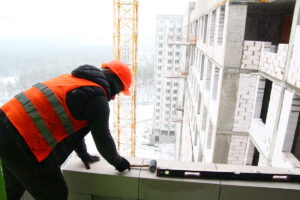
Prices for construction and installation works in Ukraine in June 2024 increased by 8.4% compared to June 2023, reported the State Statistics Service (Gosstat).
According to the State Statistics Service, in June 2024 to June 2023 prices increased in all segments of construction: in residential construction growth amounted to 8.9%, in non-residential – 9%, in engineering – 7.7%. Compared to May of this year, prices increased by 1%, 0.6% and 0.5% respectively.
At the end of the second quarter, prices for construction work rose by 8.1% year-on-year in April-June 2023, and at the end of the first half of the year – by 9.7% compared to the same period a year earlier.
As reported, in 2023, prices for construction works increased by 15.8% year-on-year.
The State Statistics Committee pointed out that the indicators are given without taking into account the temporarily occupied territories and part of the territories where there are (were) hostilities.
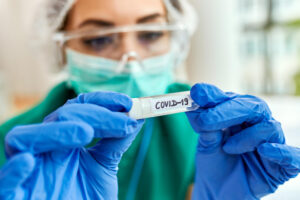
Increase in morbidity Covid-19 fixed in the Ukrainian capital in the present time, reported on the site of the Kiev city state administration (KGGA) on Wednesday.
As reported by the director of the Department of Health of the KSCA Valentina Ginzburg, in June in Kiev there were 199 laboratory-confirmed cases of coronavirus, in July – early August – 1 thousand 660, then in the second week of August, 1 thousand 283 people have already fallen ill, including 174 children.
The number of hospitalized people requiring artificial ventilation is also growing. However, in most cases, the disease runs without significant complications. “However, and in this lies its own dangers. Painful, not too suffering symptom, list them on fatigue, usual usmork, even on allergic reactions due to color ambrosia, for example. Therefore, he continues to live a socially active life, to work, and thus to spread Covid,” Ginzburg warned.
She urged to be conscious of your health and epidemic safety, use protective masks, hand antiseptics, avoid crowded places and contact with people with cold symptoms, keep your distance in crowded places.
“Be sure to stay home if you feel unwell. Once again, I remind you – even a headache, a slight runny nose, or a general feeling of discomfort can be symptoms of Covid. This applies to adults and children as well. Get tested. Seek medical advice. With such a responsible approach, you will not only protect yourself from complications of the disease, but also do not endanger people around you,” Ginzburg emphasized.
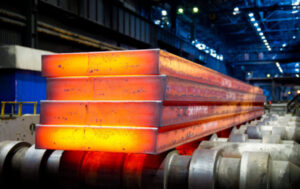
Ukrainian enterprises in January-July this year increased imports of nickel and nickel products by 2 times compared to the same period of 2023 – up to $16.980 million (in July – $4.026 million).
Ukraine for 2023 decreased imports of nickel and products by 74.2% compared to 2022 – to $15.391 million.
Nickel is used in the production of stainless steel, for nickel plating. Nickel is also used in the production of batteries, in powder metallurgy and in chemical reagents.